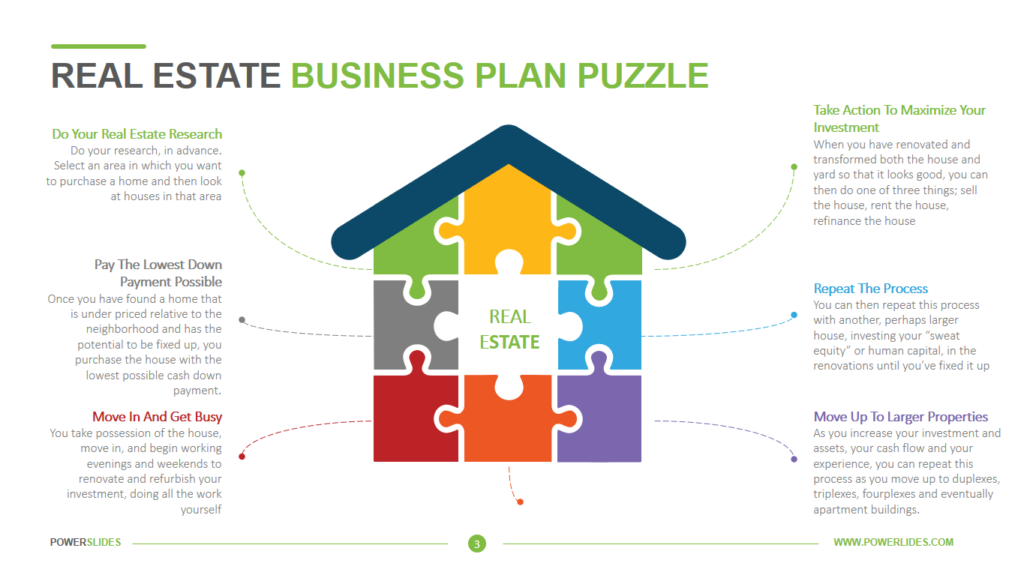Are you dreaming of diving into the world of real estate? Starting your own real estate business is an exciting journey, but do you have any idea where to begin?
Well, In this article, I’ll unravel the key steps on how to start a real estate business, guiding you through the essential questions that will pave the way for your journey into the world of property transactions and investments.
So continue reading and find out how to start a real estate business!
Is Real Estate Business Profitable?
As someone who has been on the entrepreneur journey for a long time, I can understand how worried you are, thinking whether knowing how to start a real estate business is worth it or whether to take this step.
But let me tell you, you will not feel guilty about it.
The real estate business industry is a dynamic and ever-evolving landscape offering immense profitability potential. Whether you’re a seasoned investor or a budding entrepreneur, the opportunities are limitless.
The demand for real estate is high, from residential properties to commercial spaces. As populations grow and urbanization continues to shape our cities, the need for housing, offices, and retail spaces only intensifies.
This is a wonderful opportunity for people like you and me who are eager to enter the real estate market. You can get substantial financial gains with careful research, strategic investments, and a keen eye for emerging trends.
Also, real estate offers the advantage of long-term appreciation, providing a solid foundation for wealth accumulation.
So, if you’re ready to start this thrilling journey where every deal provides you happiness, the real estate business industry awaits your arrival!
How To Start A Real Estate Business?
As you scroll down and look more at the real estate business, I can imagine that you pretty much understand how profitable this industry is.
Starting a real estate business is more challenging than you may think, yet it is possible with the thorough steps on how to start a real estate business. Yes, you heard it right!
So, let me take you through the essential tips and tricks on how to start a real estate business.
Step 1: Define Your Niche
The first step in how to start a real estate business is to define your niche.
Real estate is a vast industry, encompassing various sectors such as residential, commercial, industrial, and even niche markets like luxury properties or vacation rentals.
By identifying your area of expertise, you can focus your efforts and resources on a specific market segment, allowing you to develop specialized knowledge and stand out from the competition.
Consider your interests, skills, and local market conditions when choosing your niche.
Conduct thorough research to understand your chosen niche’s demand, competition, and potential profitability.
Step 2. Understand Market Trends
Next is understanding market trends.
Staying informed about market trends and economic indicators is crucial to thrive in the real estate business.

Monitor interest rates, housing supply and demand, population growth, and local development plans. Stay updated on emerging technologies and innovations that may impact the industry, such as virtual reality tours or blockchain-based property transactions.
Understanding market trends lets you make informed decisions regarding property acquisitions, pricing strategies, and investment opportunities.
Regularly analyze market data and consult with industry experts to stay ahead.
Step 3. Create a Business Plan
A well-crafted business plan is the roadmap to success for any real estate business. It serves as a blueprint that outlines your goals, strategies, and financial projections.
Start by defining your mission statement and core values, as they will guide your decision-making process. Identify your target market and develop a marketing strategy to reach potential clients.

Determine your funding sources, whether it’s through personal savings, loans, or partnerships. Outline your short-term and long-term goals, and establish a timeline for achieving them.
A comprehensive business plan will not only help you stay focused but also attract potential investors or lenders who may be interested in supporting your venture.
Step 4: Build a Sales Plan
Fourth on our list of how to start a real estate business is creating a sales plan.
In the real estate business, sales are the lifeblood of your success. Develop a sales plan that outlines your target audience, lead generation strategies, and conversion tactics.
Consider utilizing both traditional and digital marketing channels to reach potential clients. Networking, attending industry events, and building relationships with local businesses can generate leads effectively.
Also, invest in professional photography and staging services to showcase your properties in the best possible light.
Step 5: Access Your Finances
Starting a real estate business requires adequate financial resources. Assess your finances and determine how much capital you can invest in your business.
Consider financing options such as small business loans, partnerships, or angel investors.
Create a detailed budget for startup costs, ongoing expenses, marketing, and employee salaries. It’s crucial to clearly understand your financial situation to ensure the sustainability and growth of your business.
Step 6: Choose a Legal Structure
Now, it’s time to give your real estate business its legal identity.
Choosing a legal structure for your real estate business is essential. Think of it as choosing the foundation for your dream house. You’ve got options like a sole proprietorship, partnership, limited liability company (LLC), or even a corporation.

Each has benefits and challenges, so consider your long-term goals, liability concerns, and tax implications. So, it is also better to consult with a business attorney or accountant to find the one that is most appropriate for your particular case.
The right structure can provide you with protection and flexibility, so take your time and make a decision that sets you up for success.
Step 6: Set Up Your Shop
Establishing a physical presence for your real estate business is essential for credibility and visibility.
Pick a convenient location for customers to reach and is in line with your target market. Create a pleasant environment for your potential customers or sellers by setting up an office space that fits your brand.
Invest in quality office equipment, signage, and technology to streamline operations and enhance customer experience.
Step 7: Obtain Your Business License
Before commencing operations, obtaining the necessary licenses and permits to operate legally is essential.
Think of it as the official stamp of approval that legitimizes your real estate business. The process varies depending on your location, but it generally involves filling out paperwork, paying a fee, and complying with local regulations.
Research the specific licensing requirements for real estate businesses in your jurisdiction and ensure compliance with all regulations.
This step will provide credibility to your clients and protect you from potential legal issues in the future.
Step 8: Set Up an Account System
An efficient accounting system is crucial for managing your finances and tracking your business’s performance.
Consider adopting accounting software like QuickBooks Online or Wave or working with a professional bookkeeper to manage your financial records, invoices, and tax requirements.
Maintaining accurate and up-to-date financial records will help you make informed business decisions and simplify the process during tax season.
Step 9: Hire a Business Lawyer
Navigating the legal aspects of the real estate industry can be complex.
Hiring a business lawyer with expertise in real estate law is highly recommended. They can assist you with drafting contracts, reviewing lease agreements, and ensuring compliance with local regulations.
A knowledgeable attorney will provide valuable guidance and protect your interests throughout your real estate journey.
Step 10: Have Your Business Insured
Insurance is a critical aspect of any real estate business. It protects you from unexpected events.
Protect yourself, your employees, and your clients by obtaining the appropriate insurance coverage. Consider policies such as general liability insurance, professional liability insurance, and property insurance.
Consult an insurance agent to assess your needs and ensure comprehensive coverage.
Step 11: Create a Brand
Now comes the exciting part of starting your real estate business: creating a captivating brand that sets you apart from the competition.

To establish a distinctive identity in the competitive real estate industry, it is crucial to have a strong brand. Your brand is more than just a logo; it’s the personality of your business.
So begin by defining your mission, vision, and core values. Create an engaging brand story, a memorable logo, and a catchy tagline for your target market.
Maintain an impressive web presence, provide outstanding customer service, and consistently promote your brand value to stand out from the crowd.
Step 12: Have a Website
In today’s digital age, having a professional website is non-negotiable.
Your website is a virtual platform for showcasing your offerings, services, and experience. Make sure your website is easy to use, accessible to mobile devices, and search engine optimized.

Include high-quality images, detailed property descriptions, and contact information to facilitate seamless communication with potential clients.
Step 13: Create a Social Media Presence
Social media platforms offer powerful tools for marketing and engaging with your target audience.
Create business profiles on Facebook, Instagram, LinkedIn, and Twitter platforms. Share valuable content, industry insights, and property listings to attract followers and generate leads.
Also, reply to your audience’s reviews, comments, and messages as soon as possible to engage with them. Use social media ads to target particular demographics and expand your audience.
Step 14: Stand Out from Competitors
Setting yourself apart from competitors is crucial if you want to succeed in the real estate sector.
Identify and emphasize your USP (unique selling points) in your marketing efforts. Offer exceptional customer service, go the extra mile for your clients, and consistently deliver on your promises.
Consider innovative strategies such as virtual tours, 3D property renderings, or personalized marketing campaigns to stand out in a crowded market.
Step 15: Build a Strong Network
In the real estate industry, networking is vital to success.
Building relationships with real estate agents, brokers, lenders, contractors, and attorneys can provide valuable insights, referrals, and potential partnerships.
Attend industry events, join local real estate associations, and engage in online groups to expand your network.
Also, to provide your clients with a wide range of services, consider developing strategic alliances with businesses that complement your own, including interior design firms or companies specializing in home staging.
Remember, a strong network can open doors to new opportunities and help you stay ahead in a competitive market.
Step 16: Develop Effective Marketing Strategies
Marketing is vital in attracting clients and generating leads for your real estate business.
Create a business website that represents you well, and use social media to promote your listings and areas of expertise. Invest money in quality photography and virtual tours to highlight your properties’ distinctive qualities.
Improve your website’s visibility in internet searches by implementing search engine optimization (SEO) techniques. Consider conventional marketing strategies like direct mail campaigns, print adverts, and networking events to reach potential customers.
Step 17: Manage Customer Relationships
The Last and final step of how to start a real estate business is managing customer relationships.
Success in the long run depends on developing and maintaining customer relationships.
Provide exceptional customer service, listen to their needs, and exceed expectations. Keep in touch with old clients by sending newsletters, holiday greetings, or personalized follow-ups.
Encourage happy clients to recommend your services to their friends and family and submit reviews.
By prioritizing customer satisfaction, you will foster loyalty and generate repeat business.
As I already said, starting a real estate business is exciting and challenging. But by following these essential steps on how to start a real estate business, you can build an excellent base for success in the industry.
Remember, starting a real estate business requires dedication and continuous learning. With a positive mindset and a strategic approach, you can thrive in the real estate business and explore financial success.
Documentaries Required For Real Estate Business
Now that you have learned how to start a real estate business let’s get into some serious stuff.
Yes, documentaries needed to start your real estate business.
You’ll need to gather several important documents to help you establish your business, ensure legal compliance, and facilitate smooth operations.
So, Let’s explore the essential documents you should have:
1. Entity Formation Documents
You’ll need to file the necessary paperwork to establish your business as a legal entity.
This typically includes registering your business name, obtaining a tax identification number, and deciding the right legal structure, such as partnership, sole proprietorship, or LLC.
2. Real Estate License
Depending on your jurisdiction, you may need to obtain a real estate license to operate as a real estate agent or broker legally. Research the requirements in your area and complete the necessary education and licensing exams to obtain your license.
3. Contracts and Agreements
Real estate transactions involve various contracts and agreements. These include purchase agreements, lease contracts, listing agreements, and more.
Having well-drafted documents ensures clear communication, protects your interests, and establishes the terms and conditions of your business dealings.
4. Financial Documents
Proper financial management is essential for any business. Maintain accurate financial records, including income and expense statements, balance sheets, and cash flow statements.
These documents will help you track your business’s financial health, make informed decisions, and fulfill tax obligations.
5. Compliance Documents
Ensure compliance with local regulations and laws by obtaining any necessary permits or licenses specific to your area. This may include zoning permits, occupancy permits, or other local requirements.
Starting a real estate business involves careful planning and attention to detail.
By gathering these essential documents, you’ll be well-prepared to embark on your real estate journey and establish a strong foundation for your business.
How Much Does It Cost To Start A Real Estate Business?
Now, it’s time to calculate the expenses.
Starting a real estate business can be rewarding, but like any business, it comes with its own set of costs and financial considerations.
The amount needed to kickstart your real estate career can vary widely based on location, niche, and business model. In this section, we’ll delve into the essential costs of launching a real estate business.
- Business Entity Registration Fees: between $100 and $800
- Insurance: $500 to $2,000 annually.
- Marketing and Advertising: business cards and marketing materials can cost approximately $1,000 to $5,000.
- Office Space and Equipment: Renting commercial space can range between $500 to $5,000 per month, while home office expenses may include furniture, internet, and utilities, totaling around $100 to $500 monthly.
- Technology and Software: Customer relationship management (CRM) software, real estate apps, and website maintenance costs can add up to $1,000 to $2,000 annually.
- Licensing and Association Fees: Joining a local real estate association or the National Association of Realtors (NAR) may require annual dues ranging from $100 to $600.
- Legal and Accounting Fees: Consulting with a lawyer and accountant to set up your business, review contracts, and handle taxes can cost anywhere from $500 to $2,000 or more, depending on your needs.
- Client Acquisition Costs: Building a client base may involve marketing and advertising expenses, such as pay-per-click advertising, which can cost around $500 to $2,000 per month.
So, what’s the total to start your real estate business?
You can expect to invest between $5,000 to $25,000 depending on your specific circumstances and ambitions. Keep in mind that these are approximate figures, and costs can vary widely.
As said, the location of your business, your marketing approach, and the scale of your operations will all influence the final tally.
It’s important to remember that while the upfront costs of starting a real estate business can be significant, the potential for earning a substantial income can outweigh these initial investments.
As you gain more experience and build a client base, your revenue will grow, making the early expenses a worthwhile investment in your future success. Good luck!
7 Ways To Grow Your Real Estate Business
Congratulations on your real estate business! Now that you’ve taken the leap, it’s time to find some easy ways to grow your business.
Don’t worry, I will help you.
1. Collaborate with Local Businesses
Yes, partner with local businesses like interior designers, home inspectors, or moving companies. This adds value to your clients and can result in referrals from your partners.
2. Network, Network, Network
As mentioned in step 11 of how to start a real estate business, networking is the lifeblood of the real estate business.
Attend industry events, join professional associations, and connect with other real estate professionals. Cultivate relationships with local businesses, contractors, and service providers who can become valuable referral sources.
3. Provide Exceptional Customer Service
Go above and beyond to provide exceptional customer service at every transaction step.
Be responsive, attentive, and proactive in addressing your clients’ needs. By delivering a memorable experience, you’ll earn excellent reviews, referrals, and repeat business.
4. Utilize Video Marketing
Video content is engaging and effective. Create property walkthrough videos, live Q&A sessions, and informative video blogs.
Videos can help potential clients get to know you and your properties better.
5. Specialize and Differentiate:
Specialize in a particular market segment or property type, such as luxury homes, commercial properties, or vacation rentals.
Also, develop expertise in a specific neighborhood or demographic. By positioning yourself as an expert in a specialized area, you’ll stand out from the competition and attract clients seeking your unique knowledge and services.
6. Embrace Technology
Utilize virtual reality tours, drone photography, and 3D floor plans to showcase properties in an immersive and engaging way.
Leverage customer relationship management (CRM) software to streamline your operations, manage leads, and stay organized.
7. Continuous Learning and Professional Development
The real estate industry is ever-evolving, and staying updated is essential.
Invest in professional development by attending seminars, workshops, and industry conferences. Stay informed about market trends, new rules and regulations, and emerging technologies.
Remember, growing your real estate business is a journey that requires dedication, perseverance, and a touch of creativity.
Putting these interesting strategies into practice, you can boost growth, build successful connections, and enjoy the benefits of a thriving real estate business.
So put on your entrepreneurial hat, be open to the opportunities, and watch as your business leaps.
Conclusion
Exploring the journey “how to start a real estate business” is exciting and filled with opportunities. By following the steps outlined in this guide on how to start a real estate business, you can embark on this business with confidence.
Conduct thorough market research, build a solid business plan, and establish a strong online presence. Also, nurturing relationships and staying updated on industry trends will be crucial to your long-term success in the competitive world of real estate.
So, go ahead and take a step toward building your real estate empire!
FAQs
1. What should be included in my real estate business plan?
A comprehensive business plan should outline your goals, target market, financial projections, marketing strategies, and a detailed action plan. It serves as a roadmap for your business’s success.
2. What financing options are available for starting a real estate business?
Financing options include personal savings, bank loans, partnerships, private investors, crowdfunding, and real estate investment trusts (REITs). Each has its advantages and disadvantages, depending on your circumstances.
3. Do I need any specific licenses or permits to operate a real estate business?
The licensing requirements vary by location. Generally, you’ll need a real estate license to practice as an agent or broker. Additionally, check with your local government for any specific permits or licenses required for property management or investment activities.
4. What are the benefits of having a professional network in the real estate industry?
Networking can provide valuable connections with other professionals, such as realtors, contractors, inspectors, and investors. These can lead to partnerships, referrals, and insights that help your business grow.



![21 Worst Shark Tank Failures And Why They Failed? [2024] 8 Shark Tank Failures](https://thehustlestory.com/wp-content/uploads/2021/11/Shark-Tank-Fails-Blog-Banner-2.jpg)


